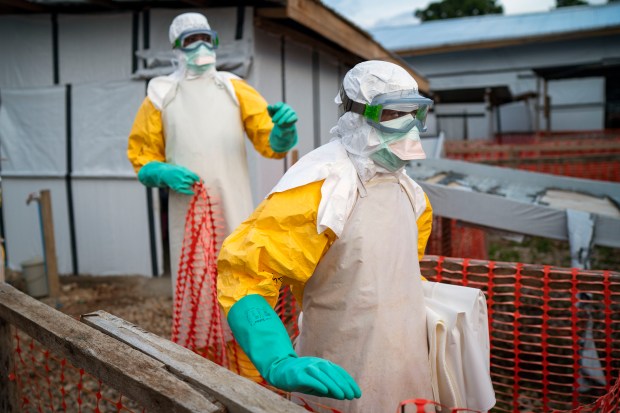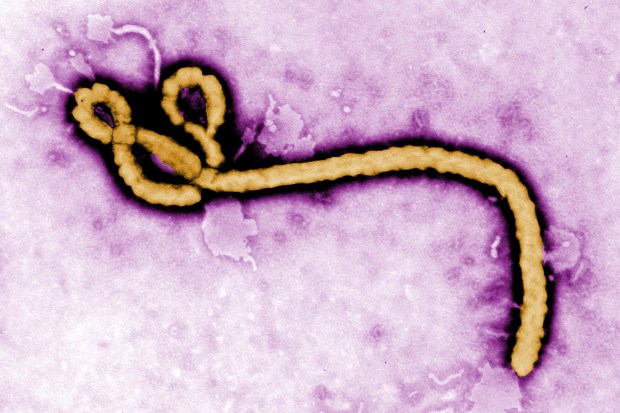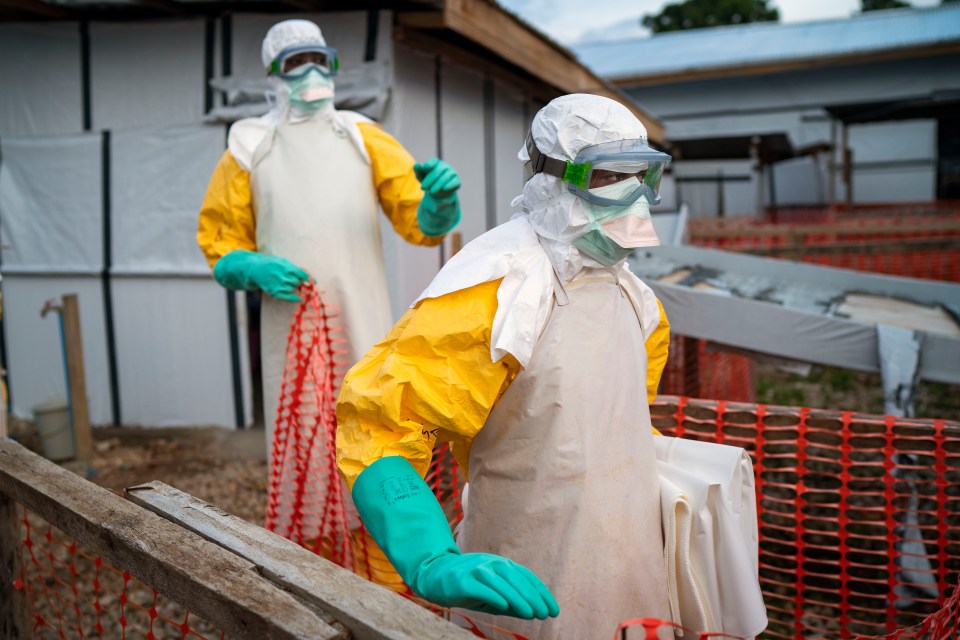‘Miracle’ Ebola drugs could prove a cure – saving millions and halting epidemics

SCIENTISTS say they are a step closer to finding a "miracle" cure for Ebola which could save millions.
Two potential drugs have shown a survival rate of as much as 90 per cent in a clinical trial in the Democratic Republic of Congo (DRC).
The experimental treatments - REGN-EB3 and a monoclonal antibody called mAb114 - were both developed using antibodies from Ebola survivors.
They are now going to be offered to all patients in the DRC, according to US National Institute of Allergy and Infectious Diseases.
At least 1,676 people have died since August last year - more than two thirds of those who contracted it - in the second-deadliest Ebola outbreak in history.
The drugs improved survival rates from the disease more than two other treatments being tested - ZMapp and Remdesivir - which have since been dropped.
Promising results
Anthony Fauci, one of the researchers co-leading the trial, said: “What this means is that we do now have what look like (two) treatments for a disease for which not long ago we really had no approach at all."
The agency said of the patients who were brought into treatment centres with low levels of virus detected in their blood, 94 per cent who got REGN-EB3 and 89 per cent on mAb114 survived.
In comparison, two-third of the patients who got remdesivir and nearly three-fourth on ZMapp survived.
Ebola has been spreading in eastern Congo since August 2018 in an outbreak that has now become the second largest, killing at least 1,800 people.
Efforts to control it have been hampered by militia violence and some local resistance to outside help.
A vast Ebola outbreak in West Africa become the world’s largest ever when it spread through Guinea, Liberia and Sierra Leone from 2013 to 2016 and killed more than 11,300 people.
Deadly virus: What is Ebola, what are the symptoms and can it be treated?

THE Ebola virus can spread quickly and be fatal in up to 90% of cases.
Symptoms include fever, vomiting, diarrhea, muscle pain and at times internal and external bleeding.
The virus is most often spread by close contact with bodily fluids of people exhibiting symptoms and with contaminated objects such as sheets.
Health care workers are often at risk.
There is no licensed Ebola treatment, but early care such as rehydration helps to improve the chances of survival.
Some patients in the latest outbreak have received experimental treatments but their effect has not been fully studied.
An experimental Ebola vaccine has been effective in its first widespread use, and more than 163,000 people have been vaccinated.
The vaccine's testing was sped up during the West African Ebola outbreak in 2014-16 that killed more than 11,300 people.
The Congo treatment trial, which began in November last year, is being carried out by an international research group coordinated by the World Health Organisation (WHO).
Mike Ryan, head of the WHO’s emergencies programme, said the trial’s positive findings were encouraging but would not be enough on their own to bring the epidemic to an end.
He said: “The news today is fantastic. It gives us a new tool in our toolbox against Ebola, but it will not in itself stop Ebola."
Jeremy Farrar, director of the Wellcome Trust global health charity, also hailed the success of the trial’s findings, saying they would “undoubtedly save lives”.
Mr Farrar said: “The more we learn about these two treatments, ...the closer we can get to turning Ebola from a terrifying disease to one that is preventable and treatable.
MORE ON EBOLA
“We won’t ever get rid of Ebola but we should be able to stop these outbreaks from turning into major national and regional epidemics.”
Some 681 patients at four separate treatment centres in Congo have already been enrolled in the Congo treatment clinical trial, Fauci said. The study aims to enrol a total of 725.
The decision to drop two of the trial drugs was based on data from almost 500 patients, he said, which showed that those who got REGN-EB3 or mAb114 “had a greater chance of survival compared to those participants in the other two arms”.
We pay for your stories! Do you have a story for The Sun Online news team? Email us at [email protected] or call 0207 782 4368 . You can WhatsApp us on 07810 791 502. We pay for videos too. Click here to upload yours.








